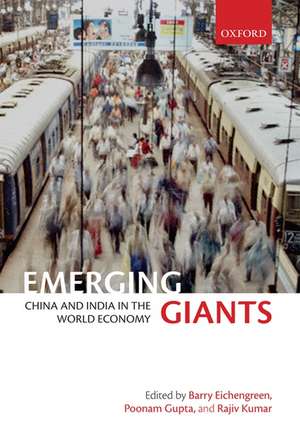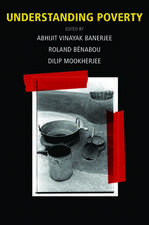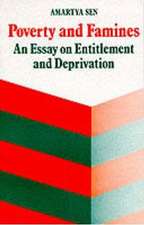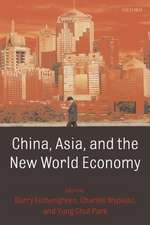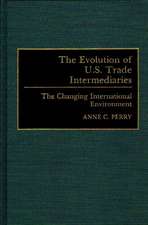Emerging Giants: China and India in the World Economy
Editat de Barry Eichengreen, Poonam Gupta, Rajiv Kumaren Limba Engleză Hardback – 29 apr 2010
Preț: 821.70 lei
Preț vechi: 1178.92 lei
-30% Nou
Puncte Express: 1233
Preț estimativ în valută:
157.23€ • 164.60$ • 130.10£
157.23€ • 164.60$ • 130.10£
Carte tipărită la comandă
Livrare economică 25-31 martie
Preluare comenzi: 021 569.72.76
Specificații
ISBN-13: 9780199575077
ISBN-10: 019957507X
Pagini: 402
Ilustrații: 98 Figures, 87 Tables
Dimensiuni: 163 x 240 x 27 mm
Greutate: 0.75 kg
Editura: OUP OXFORD
Colecția OUP Oxford
Locul publicării:Oxford, United Kingdom
ISBN-10: 019957507X
Pagini: 402
Ilustrații: 98 Figures, 87 Tables
Dimensiuni: 163 x 240 x 27 mm
Greutate: 0.75 kg
Editura: OUP OXFORD
Colecția OUP Oxford
Locul publicării:Oxford, United Kingdom
Notă biografică
Barry Eichengreen is George C. Pardee and Helen N. Pardee Professor of Economics and Political Science at the University of California, Berkeley. He is also a research associate of the National Bureau of Economic Research and a research fellow at the Centre for Economic Policy Research (London). Dr. Eichengreen served as a senior policy advisor at the International Monetary Fund from 1997-98. A member of the Council on Foreign Relations, he has published widely on international monetary and financial affairs, including Financial Crises and What to Do About Them; Toward A New International Financial Architecture: A Practical Post-Asia Agenda; and Globalizing Capital: A History of the International Monetary System.Poonam Gupta is an Associate Professor at the Department of Economics, Delhi School of Economics, Delhi University. She has previously worked as an economist in the International Monetary Fund's Research Department, Asia and Pacific Department and the European Department. She has frequently consulted for the World Bank, International Monetary Fund and the Asian and Development Bank. She holds a PhD in Economics from the University of Maryland. Her research interests include issues related to financial crises, capital flows, financial sector, structural transformation and growth, and issues related to the Indian growth experience. Her work has been published in the leading academic journals and in collective volumes.Rajiv Kumar is Director and Chief Executive of the Indian Council for Research on International Economic Relations. Dr Kumar has been a Member of the National Security Advisory Board since August 2006 and member of the Telecom Regulatory Authority of India since January 2007. From August 2004 to January 2006, Dr. Kumar was Chief Economist with the Confederation of Indian Industry and worked with ADB, Manila for over 10 years as the Principal Regional Economist for Central Asia. He has written several books and contributes regularly to newspapers and journals.
